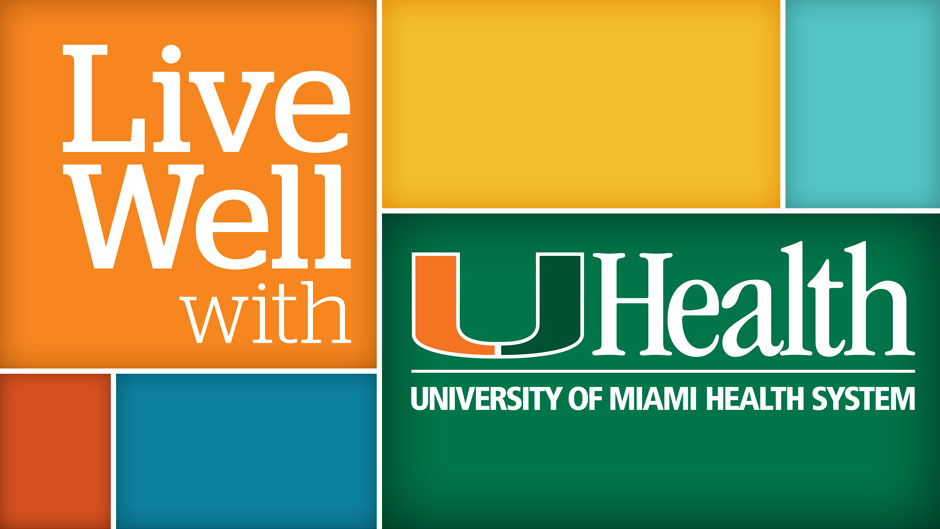When abdominal pain strikes, you may be tempted to curl into a ball and start thinking about all of the things that could be wrong. Whether you’re quick to consider heading to the emergency room or decide to wait it out, it’s important to know that abdominal pain is often a consequence of excessive intestinal gas or food-related intolerance, according to Dr. Michelle Pearlman, a board-certified gastroenterologist with UHealth—University of Miami Health System. With many vital organs located in the abdomen, Dr. Pearlman suggests the location of the pain may speak volumes about what could be causing it.
Each person is born with billions of bacteria that inhabit the gut. On a daily basis, the types of bacteria can change based on environmental and internal factors, according to Dr. Pearlman. Known as the microbiome, the gut contains a combination of so-called “good bacteria”—which promote the immune system and help regulate bowels—and harmful bacteria—which can lead to issues including diarrhea, excessive gas, obesity, mood changes, and immune disorders. Learn more about the gut microbiome.
There’s no reason to panic.
When experiencing vomiting or diarrhea, it’s most important to stay hydrated and try to prevent the spread of any viral or bacterial infection to others, says Dr. Oriana Mazorra Damas, a gastroenterologist with UHealth. While symptoms like nausea, diarrhea, and stomach pain can have many causes, when paired with a fever, it’s time to contact your doctor.
A physician may recommend COVID-19 testing based on a patient’s age, combined symptoms, the typical function of their immune system, and any known exposure to the virus, according to Dr. Mazorra Damas. Learn more about what your stomach could be telling you.
Managing irritable bowel syndrome.
Uncomfortable and embarrassing, irritable bowel syndrome, or IBS, is diagnosed by a gastroenterologist based on criteria, which include abdominal pain related to defecation or bowel movements, a change in stool frequency, or a change in stool appearance at least one day per week over the course of three months.
Dr. Pearlman suggests several ways IBS patients can relieve symptoms at home. To alleviate diarrhea, she recommends focusing on foods containing soluble fiber, which can help bulk up the stool and slow down the digestive process. Timing fluid intake by drinking the majority of liquids between meals and taking only sips with solid foods can also help. Find more ways to reduce IBS symptoms at home.
Dealing with bloat and gas.
For patients who experience an increase in gas and bloating after eating, Dr. Pearlman recommended starting a food diary to keep track of which foods and beverages are triggering gastrointestinal, or GI, symptoms. This tool can help patients work with their doctor to identify triggers and create a nutritional plan. Among her tips for managing gas she suggests reducing activities that lead to swallowing air, including using straws, sucking on candies, chewing gum, eating quickly, and consuming carbonated beverages. Learn more about how to naturally relieve belly bloat and gas.
GI symptoms can also be triggered by consuming foods high in FODMAPs, an acronym for fermentable oligo-, di-, mono-saccharides and polyols. These foods are carbohydrates that produce gas when broken down by bacteria in the gut. Limiting the consumption of high-FODMAP foods like garlic, onion, broccoli, cauliflower, honey, and fermented foods may improve symptoms for patients with IBS, according to Dr. Pearlman. Learn more about the FODMAP diet.
Get help at UHealth’s Motility Lab.
Using advanced technologies, GI specialists at UHealth focus on diagnosing the root causes of common conditions, including heartburn, acid reflux, and GERD, or gastroesophageal reflux disease. A multidisciplinary team of health care providers, including surgeons, ENT, and pulmonary physicians, are diagnosing and treating patients through the GI Motility Program. UHealth’s GI Motility Lab, one of five laboratories in Florida certified by the U.S. Neurogastroenterology and Motility Society, offers advanced diagnosis and treatment.
Access the medical care you need at a UHealth facility or via telehealth by scheduling an appointment. Find additional information about scheduling or call 305-243-4000.
Live Well with UHealth is a series highlighting curated content from articles previously published on UMiami Health News, a site that shares useful health tips and insights into research discoveries that change lives, brought to you by the experts at UHealth—the University of Miami Health System. This story highlights the following articles:
- What’s causing my abdominal pain? by Natasha Bright, Aug. 9, 2019
- What is the gut microbiome? by Dana Kantrowitz, July 22, 2019
- COVID-19: What your stomach could be telling you by Dana Kantrowitz, April 7, 2020
- How to reduce your IBS symptoms at home by Dr. Michelle Pearlman, May 15, 2020
- How can I naturally relieve belly bloat and gas? by Dr. Michelle Pearlman, May 18, 2020
- What is the FODMAP diet? by Dana Kantrowitz, Aug. 8, 2019
- Focusing on You: GI Motility Lab at University of Miami Health System by UHealth, March 24, 2020

